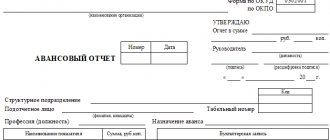The current labor legislation of the Russian Federation does not use the term “time off” to define temporary cessation of work.
The Labor Code (LC) regulates the concepts of break, vacation and day off. In civil usage, time off means not going to work for a certain time by agreement with the employer.
Legislative norms for rest are established in the form of:
- weekends and holidays;
- heating break and lunch time;
- planned annual leave or corresponding monetary compensation;
- additional leave for certain categories of citizens, provided without pay;
- additional days off or compensation for work outside normal hours (by agreement with the employer).
Providing time off (day off) with subsequent working hours is decided by agreement with the employer or is fixed as a norm when drawing up an employment contract.
What is meant by time off?
The current general rules and regulations do not contain such a concept as time off at all. It was formed based on established practice. Its official name sounds like leave without pay. Every worker can ask the manager to provide this time, regardless of his position and the specifics of his professional activity.
A special feature of this period is the fact that in this case, during the interruption of professional activity, earnings will not be accrued due to the fact that the person does not actually fulfill his duties. But at the same time he is not relieved of his position.
For each worker, a standard amount of time is determined that he must work in order to receive money in the future.
If a person needs to resolve his personal issues during such a time, then he can temporarily interrupt his professional activities in agreement with the head of the company. This is called time off. Moreover, this can be realized both by working out the established norm, and by taking on the obligation to work it out in the future.
In this regard, it is provided
According to the general rules, a worker can temporarily interrupt his work for personal and family reasons, that is, in the presence of problems that require an immediate solution and make it difficult to fully perform official duties. In this case, the worker’s wages are not retained for such a period of time.
It should be noted that in most cases, providing gaps of this kind is the right, and not the responsibility, of the manager.
Although there are exceptions for some categories of workers. The latter is that the current regulations have imposed an obligation on the boss to provide compulsory time off during the year to the following employees:
- those who took part in the Great Patriotic War - up to thirty-five actual days;
- for workers who perform their duties while already on well-deserved rest - up to fourteen days;
- parents and spouses of law enforcement officers who passed away while performing their official duties or who received injury that led to this result - up to fourteen days;
- for persons with disabilities – up to sixty days;
- to all workers without exception for reasons related to the birth of a baby, the creation of a family unit, or the death of loved ones - up to five days.
It is worth noting that this list is not exhaustive and the company’s internal rules may provide for other reasons for granting an employee time off.
Emerging nuances
Having received an employee’s application for time off with subsequent work, the employer can grant it.
In this case, he will have to issue an appropriate order and familiarize the employee with it.
Make the necessary adjustments, both to documents and directly to the work process itself due to the absence of an employee.
Important! When applying for time off with subsequent work, you must indicate a specific reason why the employee needs it.
If the day off is taken into account for time already worked, then it is not at all necessary to explain the reason.
Although some employers even in this situation show increased curiosity.
Whether or not to answer questions if a day has already been worked is the employee’s right. In the latter case, the day off will still be provided.
Sometimes it is much easier to take a day without pay than to take time off with work.
For example, in some situations, the employer will not be able to refuse to provide leave without pay, and its duration may even be 1 day.
Regardless of the reasons for absence from work, the employer's consent must be obtained.
Otherwise, it may be regarded as absenteeism and the employee may be subject to disciplinary action, including dismissal.
In fact, the employer’s consent will be considered received only after the relevant decree is issued.
Important! Sometimes companies independently develop a form for applications for time off.
This is permissible by law and it is recommended in this case to resort to filing an appeal in accordance with the rules adopted by the organization.
Standard forms and procedures for processing applications are established in order to simplify and make internal document flow more understandable.
This opportunity is often used by large companies, where there are thousands of employees and it is easier to process standard applications.
It is worth knowing that in large organizations it is required to first coordinate an application for time off with the employee’s immediate superior, for example, a foreman or department head.
Only after this the application can be submitted to the management of the organization. Sometimes there may be several stages of approval.
Legal basis
Issues of providing additional days off or vacations are regulated by the Labor Code of the Russian Federation.
But often the employee’s rights in this regard are significantly expanded and are specified in the employment, collective agreement or other internal regulatory documents of the employer.
Each employee is introduced to them upon employment upon signature or subsequently when the relevant orders are issued.
If you have any questions about taking time off, you should contact the organization’s accounting department or human resources department.
Representatives of trade unions can also clarify some points. But this last point usually applies only to large organizations. In small firms, most often no one talks about any trade unions.
Main concepts
Russian legislation got rid of the concept of time off quite a long time ago. Instead, an additional day off, various types of vacations, etc. are used. But this did not change the essence.
If in the application an employee asks for time off, this will not cause any surprise or indignation. Everyone will perfectly understand his message and arrange a day off according to the rules of the law.
An additional day off can be provided on account of time already worked, with subsequent work, or without pay.
In a situation where the employee has already gone to work on his day off and has not yet received monetary compensation for overtime, the employer will not be able to refuse to provide time off.
The employee’s application must be reviewed by the employer. The decision taken on it is usually formalized in the form of an order.
After its publication and the employee’s familiarization with it, it is binding, including for the employer’s management.
In what cases is it provided?
In fact, Russian legislation establishes that time off with subsequent work can be provided to an employee simply by agreement with the employer.
There are no restrictions on the existence of any grounds for receiving it. But there is one condition: the employer’s consent is required.
Without it, you won’t be able to take a day off, and unauthorized absence may be considered absenteeism.
The main reasons employers accept for providing time off are:
| Various family circumstances | preparing the child for school, visiting relatives |
| The need to visit government agencies | for processing various documents |
| visit to the doctor | — |
The situation with time off without pay is somewhat different. In this case, there are circumstances in which the employer is obliged to provide them:
- death of a close relative;
- birth of a child;
- wedding.
What categories of workers
Any employee can apply for time off for future work. But this does not mean that the employer will necessarily satisfy her.
It is quite possible that right now he cannot provide an additional day off for various reasons, for example, due to production needs.
There are no preferential categories of employees in this case.
The situation is completely different with leave without pay. It can be issued even for one day.
The employer will not be able to refuse to provide such time off to a number of employees, provided that the maximum number of days used per year is observed.
Let's consider which category of employees the employer will be required to provide time off without pay:
- pensioners;
- disabled people;
- WWII participants;
- parents and spouses of those killed in the performance of their military duties.
Is refusal possible?
Providing time off with subsequent work is the employer’s right, but not an obligation.
He may have his own plans, which he has no particular desire to violate.
It is for this reason that it is imperative to indicate in the application for time off with subsequent work off the reason why the employee requires it.
If she is respectful enough, then the employer will probably be able to accommodate her halfway.
The situation is similar with leaves without pay. Only if the employee has certain circumstances or is classified as a preferential category will the employer be able to refuse to provide him with a day off.
Video: vacation at your own expense, if we agree
Providing a day of rest
Any worker can send his manager a request for a temporary interruption of professional activity that is not planned in the vacation schedule.
Most often this can happen in two cases.
First of all, a person makes a petition of this kind in the case when he previously worked during a non-working period, that is, he used his personal time not for rest and recovery, but to perform the duties of his position. Accordingly, in such circumstances, anyone wants to compensate for costs of this kind. According to the general rules, a worker may not receive monetary compensation, but can take time off from work, that is, use it for its intended purpose - for rest and recovery.
Another opportunity to receive time off is the obligation of a person, which he undertakes on his own initiative, to work out the established working period in the future. Most often, this happens in cases where unforeseen problems arise that require immediate solutions, for example, organizing the funeral of a relative.
With subsequent processing
An application for time off can be sent to the manager with the condition of subsequent work. In this case, the boss is empowered to provide the days the person needs. Most often, such an initiative is facilitated by the emergence of unexpected problems.
An interested initiator needs to be prepared for the fact that the manager may refuse the request. The exception here is if the worker is included in a preferential category or the need is caused by valid reasons of a personal or family nature, for example, marriage or the passing of a relative.
In other cases, the person will be required to work out the days used, since his absence negatively affects the established frequency of work.
Taking into account the above, the manager needs to determine the time during which the person will be required to work off the used time off.
The worker should understand that future work will take place in his personal time. That is, he will have to work either overtime or on a day that is a non-working day, according to the established work schedule.
For previously worked time
The situation with granting time off for previously worked time is somewhat different. This procedure is typical for situations where a person worked on a personal day off or after the end of a work shift, that is, overtime.
Most often, this happens at the direction of the manager, when it is necessary to complete work, the volume of which is quite significant, and the main time for this is simply not enough.
Engagement in labor in these circumstances is always accompanied by the execution of an order from the head of the organization of the appropriate nature. It is this document that reflects the type of compensation for personal time that was used for other purposes. That is, it is agreed in advance that a person can take time off at any time convenient for him. The order may also stipulate specific dates for such a period.
It should be noted that in this case, refusal on the part of the manager is not allowed. In other words, if the parties agreed in advance on this type of compensation and this is reflected in the content of the order, then the worker must be given time off.
Decor
The procedure for recording applications from an employee involves issuing an order for the enterprise, which specifies the period of time off, parameters for maintaining wages, and the employee’s ability to compensate for the company’s expenses during his unscheduled absence. The order is the basis for the accounting department to standardize labor and calculate wages. If the vacation is taken out at your own expense, without working off, then on the basis of the order, payment is made minus the days provided for time off.
Accounting
Official registration of days off provided by the enterprise at the request of the employee is subject to accounting, carried out according to a time sheet, which indicates the actual days worked. If the opportunity to work after hours is not provided, then in such cases the amount due to the employee for the calendar month is reduced by the amount due to the employee during his absence.
To properly process emergency short-term leave, the organization organizes the interaction of the personnel service, office work and accounting.
The basis for all postings and accounting is an order signed by an authorized person.
If an agreement, like an agreement between an employee and an employer, is drawn up in advance, then the order reflects the essence of the issue. For example, providing the employee with one additional day of rest due to subsequent overtime work. The employee submits an application to participate in work outside the schedule, and the accounting department makes entries according to the standard scheme, paying remuneration at the increased rate provided for by law.
In most cases, it is necessary to leave the workplace unexpectedly due to family or personal circumstances. In this case, the employee submits a corresponding appeal, on the basis of which an order is issued, which reflects the reason for not going to work, payment for the day off and the method of accounting in the timesheet.
If an employee wishes to get a day off due to holidays, then, in accordance with the explanation of Rostrud, rest is provided for the whole (full) day, regardless of how many hours are actually worked. By agreement of the parties, in order to maintain wages, an employee may be required to work on weekends if he received an unscheduled day off earlier.
The employer, for registration within the framework of the current legislation, can issue an order on the duration of work on holidays for a certain employee, which will compensate the costs for both parties and will not disrupt accounting entries. The employee’s wages will remain the same, and the timesheet will indicate the actual time worked. With hourly pricing, you don’t have to issue an order, but establish for the enterprise that accruals are made based on recording the time worked, including weekends. The timesheet takes into account the hours that the employee was actually employed at the workplace.
When issuing salary
If, by agreement of the parties, the employee undertakes to work the missed days, the salary remains unchanged, and records are kept by the rate adjuster on an individual basis. Processing data is provided to the enterprise’s accounting department.
Part of the salary for days not worked can be deducted when issuing wages if the employee was unable to fulfill his obligations or the company cannot provide him with such an opportunity.
For commercial enterprises, having a cash register is mandatory. Read about registering cash register machines with the tax office.
What is the compensation for Sberbank deposits before 1991? See the article.
Is there compensation for unused additional vacation upon dismissal? Find out now.
Upon dismissal
If an employee is paid full wages, but he does not work the required days in accordance with the agreement, the company has the right to deduct the amount of debt when issuing subsequent wages. If an employee decides to resign and does not fulfill the obligations assumed during service, then compensation is made from the payments due to him by law at the time of dismissal.
Previous article: Time off due to the death of a relative Next article: Report on time off
Purpose of the document Most situations when issuing time off for an employee involve drawing up an order indicating the exact date of rest and recording the basis that is the reason for providing additional time for rest (for example, working on a day off, overtime hours). Drawing up an order for granting time off allows the employer and subordinate to avoid conflict situations (by agreeing orally, the manager can record on paper the fact of the employee’s absence from work). The Labor Code does not emphasize the obligation to draw up a document, but without it, a subordinate will not be able to exercise the right to receive time off. Sample registration at your own expense (without pay) Additional days without pay are provided to employees only after agreeing on this issue with the head of the enterprise.
InfoIn what cases is it provided? In fact, Russian legislation establishes that time off with subsequent work can be provided to an employee simply by agreement with the employer. There are no restrictions on the existence of any grounds for receiving it. But there is one condition: the employer’s consent is required. Without it, you won’t be able to take a day off, and unauthorized absence may be considered absenteeism. The main reasons that are accepted by employers for providing time off are: Various family circumstances preparing a child for school, the arrival of relatives The need to visit government agencies to complete various documents a visit to the doctor - The situation with time off without pay is somewhat different.
Rules for drawing up an application
Before getting the desired days, a person must write an application addressed to the head of the organization. The exception is the situation if the dates of leave were agreed upon in advance.
There is no clear sample of a petition of this nature defined by the current regulations. The only mandatory condition is its written form.
Some companies, for convenience, develop ready-made forms that are filled out by interested workers. However, you can also use regular office paper.
The text of the appeal must include the entire comprehensive amount of information that reflects the essence of the request.
According to established practice, it would be correct to reflect:
- Name of the organization;
- information about its manager – surname and initials;
- information about the compiler - full last name, first name and patronymic, position held;
- the reason for the appeal, that is, the period that the person worked in his personal time or that will be worked in the future, indicating the exact dates;
- the nature and description of the circumstances that caused such an initiative; this data is relevant in the event of unforeseen life situations;
- date of document preparation and personal signature of the initiator.











